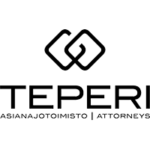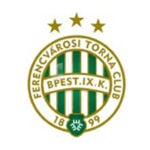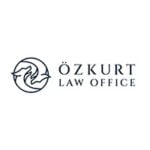-
Do you have a specific sport tribunal in your country to decide sports-related domestic issues for one or more disciplines? Are there any other sports-specific alternative dispute resolutions in your country, i.e. mediation, conciliation, or sports ombuds instance? Are there cases that can or cannot be submitted to a specific sports tribunal or cannot be subject to arbitration (e.g. labor disputes)?
There are several sport-specific tribunals in the United States that determine sports-related domestic issues. For instance, the American Arbitration Association (“AAA”) has a sports division that oversees contract disagreements, disciplinary actions, and eligibility challenges across multiple sports, and offers arbitration and mediation for resolving these disputes. In addition, AAA also handles doping allegation disputes, sponsorship/endorsement issues, and intellectual property disputes. Similarly, JAMS, an alternative dispute resolution (“ADR”) provider, maintains a sports resolution division that deals with disputes involving sports contracts, broadcast rights, sports safety issues, and select issues relating to intellectual property and copyright law. Separately, each of the major sports leagues such as the NFL, MLB, NBA, NHL and MLS all have their own ADR provisions covering player, team and ownership disputes.
In addition, the National Collegiate Athletic Association (“NCAA”), the governing body for intercollegiate sports, has its own ADR system that covers violations and penalties for member institutions and coaches, as well as contract disputes in connection with athlete NIL (i.e., name, image, likeness) disputes. Although not an ADR forum, the Athlete Ombuds office is maintained within the U.S. Olympic and Paralympic Committee. This office provides team USA Olympic athletes with confidential advice and assistance for sport-related matters, including rules, policies, and disputes.
In terms of issues or cases that cannot be submitted to sports-related tribunals, criminal conduct cannot be arbitrated, nor can antitrust or civil rights claims.
-
How is Sports law codified in your country? Is there a specific Statute or Code? Are there national sports authorities, independent agencies, or government ministries responsible for oversight?
Sports law is not codified as a single, distinct body of law in the United States. Instead, sports law involves applying established legal principles to specific situations involving athletes, teams, leagues, and sports organizations. Sports law encompasses a wide range of disciplines including contract, tax, employment and labor, intellectual property and antitrust laws.
In the United States, sports law can be roughly divided into the areas of amateur and professional sports. The distinction between a professional and amateur athlete is somewhat tenuous, as student-athletes at universities often receive scholarships and other forms of compensation.
As discussed above, the NCAA plays a prominent role in amateur sports. Although roughly 50% of the NCAA’s members are sponsored by state governments, the U. S. Supreme Court has suggested that the eligibility rules of the NCAA are not state action for constitutional law purposes.
In the realm of professional sports, perhaps the most important relationship is that between the individual player and the team owner. This contractual relationship is governed by basic contract principles. Most sports leagues now have a standard player’s contract which serves as a model employment contract between players and owners. The model contract can be modified to accommodate the special needs and talents of individual players. With the increase in salaries in professional sports, most players are now represented by agents. Typically, this relationship is governed by a standard representation contract, which defines the duties and compensation of the agent. To regulate agent activities, many state legislatures now require agents to register with some type of administrative agency.
Antitrust issues have been particularly important to professional sports leagues. While baseball has maintained its exemption from antitrust legislation (See Federal Baseball Club of Baltimore v. National League of Professional Baseball Clubs, which in 1922 held that the business of baseball isn’t interstate commerce), other professional sports have often run into problems in this area. For example, the Supreme Court unanimously held in American Needle, Inc. v. National Football League, that the NFL is capable of engaging in conduct violative of the federal antitrust law (i.e., the Sherman Act) and does not have to be viewed as a single enterprise.
-
Advertising and marketing in sport: which are the limitations foreseen in your country, for instance in relation to alcohol, tobacco or betting advertising on or around sports infrastructure, on official clothing, etc.?
In 2018, the U.S. Supreme Court ruled that sports betting regulated by the individual states was legal. Since then, lawful sports betting has grown exponentially. Major fantasy sports entities that operate sportsbooks, such as FanDuel and DraftKings, prominently advertise their services during televised sports events, including commercial advertisements and signage within sports venues, subject to specific broadcaster and league restrictions.
Recognizing the potential risks to consumers and minors of unregulated online sports betting, the American Gaming Association (AGA) has published a “Responsible Marketing Code for Sports Wagering,” which establishes voluntary advertising standards such as prohibiting misleading terms and marketing sports betting to minors. [https://www.americangaming.org/wp-content/uploads/2020/09/AGA-Responsible-SB-Marketing-Code.pdf].
In professional sports, U.S. professional leagues have their own advertising restrictions. For example, MLB permits limited sports betting advertising only from approved sports betting operators with a then-current agreement with MLB, subject to broadcast networks’ programming and time restrictions, and further subject to advertisements containing responsible gaming messaging required by applicable law. The NBA has official sponsorships with FanDuel and DraftKings.
Increasing concern over sports betting addiction in the U.S. is leading to potential legislation. For example, in September 2024, a bill was introduced in Congress called the “Supporting Affordability and Fairness with Every Bet Act of 2024” or the “SAFE Bet Act,” which would require states that offer sports betting to meet certain minimum federal standards respecting advertising, affordability and artificial intelligence, effectively restricting sports betting to states that are authorized by the Department of Justice. The SAFE Bet Act was reintroduced in early 2025 but has not moved forward in Congress. At the state law level, some states require that gambling advertisements contain a problem gambling assistance message, while others prohibit the promotion of sportsbooks on college campuses.
Major sports broadcast networks, like ESPN, have established their own detailed advertising guidelines. ESPN, for example, prohibits advertisements for “habit-forming drugs, tobacco products, handguns, or handgun ammunition,” but permits distilled liquor, beer or malt beverage advertising during certain times to limit exposure to minors while prohibiting depictions of alcohol being consumed. https://www.espn.com/adspecs/US/tv/ESPN_AdStandardsGuidelines_Oct2019.pdf.
Tobacco advertising was completely banned on television under the Public Health Cigarette Smoking Act of 1969 (effective as of January 2, 1971). U.S. federal law imposes a near complete ban on tobacco advertising in the context of sporting events.
-
Match-fixing: How is match-fixing and other forms of match manipulation combated in your country? Has your country ratified the Macolin Convention? What is the role of the sports betting industry in your country and is it subject to any specific state regulations?
In the United States, match-fixing and other forms of match manipulation are primarily combated through a combination of federal and state laws, as well as private regulation by sports leagues.
As of September 2025, the Council of Europe’s Macolin Convention (CETS N°215)—which promotes international collaboration to address the manipulation of sports competitions and its detrimental effects on the integrity of sport—has not been ratified by the United States.
The United States Supreme Court’s 2018 decision in Murphy v. National Collegiate Athletic Association, which invalidated a federal law prohibiting state-sponsored sports wagering, enabled states to authorise various forms of sports betting. Currently, a vast majority of the states have authorised some form of sports betting. This rapidly expanding, multi-billion dollar industry has brought renewed attention within the United States to issues of sports integrity, particularly concerning match-fixing and in-play manipulation.
The sports betting industry invests heavily in lobbying, campaign contributions, and ballot initiatives to influence legislative outcomes and protect its interests. Despite ongoing national debates about strengthening consumer protections, the U.S. regulatory landscape remains a fragmented patchwork of state laws. These laws range from (i) restrictions on allowing sports betting advertisements on college campuses or in campus media; (ii) criminalizing the knowing participation in rigged sporting contests as a participant, sponsor, producer, or judge; and (iii) prohibiting proposition bets on certain contests, particularly college sports. In addition, states often rely on broader criminal statutes such as the federal Sports Bribery Act, which targets bribery in sporting contests, but leaves significant gaps regarding other forms of manipulation, including insider tipping and extortion.
Major professional sports leagues in the United States—such as the NFL, MLB, NHL, MLS and NBA—often license official league data to betting operators. This practice has created additional revenue streams for the leagues and has had the added public benefit of enhancing the accuracy of wagers. In some jurisdictions, such as Illinois and Virginia, the use of official league data is even mandated for certain bets at the respective league’s request. Over time, these leagues have intensified enforcement efforts concerning match-fixing to preserve public trust and the integrity—and inherent unpredictability—of competition, implementing sophisticated disciplinary systems to govern the conduct of their players, employees, and officials. Sanctions for violations range from fines and suspensions to permanent bans, with league officials or commissioners empowered to impose these penalties.
Collectively, these developments underscore the rapidly evolving regulatory landscape as legalised sports betting becomes increasingly intertwined with the United States sports industry.
-
Is there an institution safeguarding the integrity across sports in your country, e.g. ethics and doping violations or abuse cases? Which rules does such an institution apply?
The United States does not have a single, centralized agency charged with safeguarding the integrity of sport across ethics, doping, and abuse. Regulatory (and criminal) enforcement is fragmented across several institutions whose jurisdiction depends on the level of competition and type of misconduct.
While the Rodchenkov Act makes doping a criminal offense, with violations prosecuted by the United States Department of Justice in federal courts, practically speaking, the U.S. Anti-Doping Agency (“USADA”) is the primary anti-doping regulator in the United States. Recognized by the U.S. Congress as the official anti-doping organization for Olympic and Paralympic sport through the Ted Stevens Olympic and Amateur Sports Act, the USADA enforces the World Anti-Doping Code promulgated by the World Anti-Doping Agency (“WADA”). The USADA conducts testing, adjudicates violations, and pursues sanctions before independent arbitration panels, ensuring compliance with international norms.
The U.S. Center for SafeSport, created by the Protecting Young Victims from Sexual Abuse and Safe Sport Authorization Act of 2017, serves as the centralized authority for investigating and resolving claims of sexual abuse, harassment, and other misconduct within Olympic and Paralympic sports. SafeSport enforces its SafeSport Code, which establishes mandatory reporting, investigative procedures, and disciplinary measures, including suspension or permanent ineligibility. Its authority is binding on all national governing bodies recognized by the U.S. Olympic and Paralympic Committee.
At the professional level, the major leagues such as the NFL, NBA, MLB, NHL and MLS, generally apply integrity, doping and conduct rules negotiated through collective bargaining agreements with players unions. These agreements include anti-doping provisions, gambling prohibitions, and disciplinary procedures for on and off-field misconduct. While these leagues may draw on WADA’s prohibited list as a reference, enforcement and sanctioning standards differ substantially, reflecting individualized league-union compromises.
The NCAA, as the principal regulator of intercollegiate athletics, applies its own bylaws and compliance rules. Its regulatory framework addresses recruiting ethics, gambling, and student-athlete welfare, with sanctions ranging from suspensions and bars to scholarship reductions. Although the NCAA does not directly adopt the WADA Code, it maintains a separate banned-substance list and testing program.
Lastly, the Sports Bribery Act makes it a felony to “influence, in anyway, by bribery any sporting contest, with knowledge that the purpose of such scheme is to influence by bribery that contest.” The Act does not make it a crime to influence other non-bribery conduct, but extortion, blackmail and similar conduct could otherwise be criminal.
Taken together, these institutions illustrate a pluralistic regulatory model. USADA and SafeSport operate pursuant to statutory authority, providing nationally consistent rules for doping and abuse in Olympic sports. Professional leagues and the NCAA, by contrast, maintain self-regulatory systems rooted in private agreements. And the U.S. Criminal Code (and some state laws) deal with potential criminal violations related to sport. This fragmented approach leads to inconsistent enforcement and gaps in accountability compared to countries with centralized integrity agencies. Nonetheless, the U.S. system reflects a balance between governmental mandates and the autonomy of private sport organizations.
-
How is corruption in sport regulated in your country? Is corruption between private individuals subject to criminal or civil liability and are there any sport specific corruption regulations?
The regulation of corruption in sport within the United States is not entrusted to a single centralized body but instead arises from a patchwork of federal and state criminal law, civil liability regimes, and sport-specific self-regulation. Unlike anti-doping or abuse, as discussed above, corruption in sport—encompassing bribery, match-fixing, fraud, and gambling violations— is largely addressed through general legal frameworks supplemented by league or association rules.
Corrupt practices in sport may give rise to federal or state criminal liability. The Sports Bribery Act of 1964, a federal act, criminalizes the act of influencing, or attempting to influence, a sporting contest through bribery (but not through other means). Broader statutes, such as the federal Wire Act and federal Racketeer Influenced and Corrupt Organizations Act have been used against illegal gambling rings tied to sports betting. At the state level, statutes exist which target betting-related corruption outside of the Sports Bribery Act.
Civil actions also arise where corruption causes economic harm. Leagues have pursued civil claims to protect their brands and economic interests. For example, the NCAA and major professional leagues brought civil suits under the federal Professional and Amateur Sports Protection Act against New Jersey when the state attempted to legalize sports betting. Although that statue was struck down and therefore no longer applies, as most U.S. states now allow online sports gambling, individual state sports betting regimes now often impose integrity reporting requirements that create avenues for civil and administrative enforcement.
Professional leagues enforce corruption rules through internal governance provisions contained in or contemplated by collective bargaining agreements. In some cases, enforcement has resulted in permanent player bans for gambling and game fixing scandals.
In short, corruption in U.S. sport is regulated through a pluralistic system: federal and state criminal statutes provide the backbone of liability for bribery and gambling-related misconduct, civil litigation offers remedies for private harm, and sport-specific rules enforce norms within leagues and associations. While decentralized framework can yield uneven oversight, the combined effect of state and federal statutory law and private regulation creates a multi-layered defense against corruption.
-
How is fan behavior regulated by law (for example banning orders, criminal penalties for violence, specific laws addressing measures against violence at sporting events etc.)?
Fan enthusiasm is integral to American sports, but when passion turns disruptive or violent, a range of legal and regulatory mechanisms come into play. Unlike some European systems that employ nationwide “football banning orders,” the United States relies on a patchwork of criminal statutes, civil remedies, and venue-specific rules to maintain order.
Criminal Enforcement
At the core are general criminal laws. Assault, disorderly conduct, trespassing, harassment, and public intoxication statutes apply at stadiums just as they do elsewhere. Fans who engage in fights, throw objects onto the field, or threaten players can face arrest, prosecution, fines, and jail time.
Team and League Bans
Professional leagues wield significant private enforcement power. Professional leagues and stadium operators typically reserve the right to eject spectators and revoke ticket privileges for violations of a code of conduct. Major League Baseball teams routinely impose lifetime bans for fans who throw objects, use discriminatory language or engage in racial or other discriminatory conduct. Stadiums and arenas now eject and ban fans for heckling that crosses into threats or harassment. Some teams maintain policies allowing season-long or lifetime bans for fighting or field invasions. Courts generally uphold these bans as valid exercises of private property rights, provided they do not discriminate on protected grounds.
Sports-Specific Fan Interference Laws
Some jurisdictions (including California and New York) have enacted sports-specific legislation such as “fan interference” laws which make it a misdemeanor to enter the field of play or throw projectiles, reflecting heightened concerns over player safety.
Civil Liability and Security Measures
Venue operators face negligence claims if lax security leads to spectator injuries, pushing teams to adopt strict entry screening, alcohol controls, and surveillance. After a baseball fan suffered a severe beating in a stadium parking lot in 2019, the team settled a multimillion-dollar lawsuit and increased lighting, security staffing, and camera coverage.
Federal Reach
While there is no nationwide banning order, federal statutes, such as the Sports Bribery Act or interstate stalking laws, can reach threats made across state lines to athletes or officials. Courts may also impose probation conditions prohibiting attendance at future games.
In sum, U.S. law approaches fan misconduct through a layered framework: ordinary criminal statutes, targeted sports-event provisions, private enforcement by leagues and venues, and civil liability. Though less centralized than European models, this multifaceted system gives teams and authorities significant tools to deter violence and preserve the celebratory—but safe—atmosphere that sports demand.
-
What legal frameworks exist around the ownership and governance of professional sports clubs (e.g. foreign ownership restrictions, fan ownership models, licensing requirements)?
Overview
Legal frameworks for professional sports teams are based on league-specific rules, such as constitutions and bylaws, and are governed by contract law, labor law, and federal antitrust laws. Teams and leagues operate under these internal regulations, with a commissioner typically overseeing operations and enforcing rules. Players’ unions negotiate collective bargaining agreements, which can take precedence over league rules, especially regarding player contracts. While leagues have broad autonomy in internal governance, they are still subject to overarching state and federal laws that apply to business activities, including corporate governance, tax obligations, and competition.
Internal League Governance
Constitutions and Bylaws: Leagues are often structured by documents like constitutions and bylaws, which are essentially a contract among member clubs. These documents establish the internal system of governance, setting the rules for league operations and the rights and responsibilities of member teams.
Board of Governors: A board, typically made up of team owners or their representatives, is responsible for managing the league’s governance and regulatory policies.
League Commissioner: A commissioner is appointed as the chief executive officer to manage the league’s day-to-day operations and enforce rules.
Binding Contracts: The league’s constitution and bylaws create binding contract rights and responsibilities for member teams, provided they are reasonable, don’t infringe on other parties’ rights, and don’t violate applicable laws.
External Legal Frameworks
Contract Law: Principles of contract law are applied in various sports contexts, from individual player contracts to consortium ownership agreements.
Labor Law and Collective Bargaining Agreements: Players’ unions negotiate with team owners to create collective bargaining agreements, which set terms for player contracts and other matters, and can take precedence over league rules.
Antitrust Laws: Federal antitrust laws protect trade and commerce from restraints and monopolies, influencing league rules and preventing anti-competitive practices.
Corporate Law: Sports teams must comply with corporate laws regarding their business structures, tax obligations, and other corporate responsibilities.
Stakeholders: Rapidly increasing franchise values have created investment opportunities for private equity, sovereign wealth funds, large institutional investors and high-net worth individuals and significantly impacted the historical way that professional sports franchises are owned. The current ownership trend favors consortium ownership. Full, or even partial ownership of a team, is increasingly obtainable only by entities and individuals possessing substantial financial resources. This development has occurred against a backdrop of sports franchises being controlled historically by single individuals and families with one professional sports league, the NFL, continuing to require individuals to be “controlling owners.”
Arguably, the most significant recent change in ownership of United States professional sports franchises has occurred with leagues changing rules allowing for the investment by private equity funds and other financial investors. This has occurred over a period of years with the NFL being the last to modify rules to permit limited ownership by private equity. Presently, the NFL allows up to 10% of a team to be owned by approved private equity firms, while the principal owner must retain at least a 30% stake, ensuring continued individual control.
Team ownership is typically subject to the terms and conditions of an operating agreement (or similar-type agreement). Such agreement addresses the respective rights and obligations of the parties thereto with respect to such matters as management and governance, capital contribution obligations, preemptive rights and transfer provisions. These transfer provisions generally provide for specified permitted transfers (e.g., transfers to an affiliate of the transferor) and one or more transfer restriction provisions such as approval of the transfer by a specified member ownership percentage, right of first offer, right of first refusal, tag-along right and drag-along right. Often times the operating agreement provisions mirror or are based upon provisions often found in private preferred and common equity investments.
Team ownership is also subject to the rules and regulations of the professional leagues associated with team ownership. In all instances, potential investors seeking league approval of their investment or investors contemplating approval of their proposed transfers will be subject to a detailed due diligence process and approval in accordance with applicable league ownership requirements.
-
Do you observe an increase in multi-sport ownership in your country, either across various sports or within one sport or sports discipline?
In September 2025, after a formal sales process, an investment group reached an agreement to acquire the NBA’s Portland Trail Blazers for $4.25 billion. However, the purchasing group was not a new investor seeking to break into major sports ownership. Nor was the selling group exiting from its only sports investment. Instead, the purchasing group was led by Tom Dundon, the current owner of the NHL’s Carolina Hurricanes. The seller was the estate of Paul Allen, which continues to own the NFL’s Seattle Seahawks and an interest in the MLS’s Seattle Sounders.
Dundon and Allen are two examples of a growing trend in sports ownership in the United States. To capitalize on increasing franchise valuations, and as many other potential investors find themselves priced out, owners are acquiring and holding ownership interests in multiple teams across sports (and in some cases, within the same sport). This approach provides many benefits to owners and well as to partners, fans and other industry stakeholders, but also raises new concerns.
Two of the most well-known examples of the multi-team ownership model are Fenway Sports Group and Harris Blitzer Sports & Entertainment. Fenway owns significant interests in MLB’s Boston Red Sox, the NHL’s Pittsburgh Penguins, the Premier League’s Liverpool FC, and RFK Racing, which competes in NASCAR. Fenway also led a consortium of sports owners and investors in a significant equity investment in the PGA Tour, the organizer of professional golf’s flagship series.
Similarly, Harris Blitzer, led by Josh Harris and David Blitzer, owns the NBA’s Philadelphia 76ers, the NHL’s New Jersey Devils, teams in the NBA G League and the American Hockey League, and was recently awarded the new WNBA expansion team in Philadelphia. In 2023, Harris and Blitzer led an ownership group in the acquisition of the NFL’s Washington Commanders for a then-record $6.05 billion.
The multi-team ownership model offers several advantages to ownership groups. Cross-promotional opportunities allow owners to offer increased exposure to brand partners. Expertise in ticketing, media, merchandise, sponsorship and other operational and commercial matters can increase benefits and enhance efficiency. Within markets, co-ownership can increase fan engagement through aligned marketing and partnerships. Finally, multi-team ownership allows owners to spread risk across different leagues, taking advantage of variations in league calendars and renewals of media rights, one of the primary drivers of franchise valuations.
However, the multi-sport ownership model also presents several concerns. Conflicts of interest can arise in several contexts, including media rights negotiations and sponsorships. Increasing consolidation in ownership may also stifle competition among owners and lock out new investors. Navigating numerous league rules and governance issues increase compliance costs. From a fan relation standpoint, fans may question ownership’s commitment to a specific team or perceive that ownership is prioritizing one team to the detriment of another.
As franchise valuations continue to increase in the United States, ownership will likely remain concentrated among wealthy individuals and institutional groups. As a result, multi-team ownership is likely here to stay.
-
Are there any mandatory national provisions, apart from regulations of international sports governing bodies, which regulate athlete representation in your jurisdiction and are there specific limitations to the representation of athletes, such as e.g. provisions regarding dual representation, caps on agent commissions, regulations on the protection of minor athletes?
At the federal level, the regulation of athlete representation in the United States is limited and primarily focused on the protection of student athletes. The principal federal statute in this area is the Sports Agent Responsibility and Trust Act (“SPARTA”). SPARTA defines an “athlete agent” as any person who enters into or solicits an agency contract with a student athlete, expressly excluding family members, legal counsel acting outside the scope of agency and individuals acting solely on behalf of professional sports teams or organizations. The statute prohibits athlete agents from providing materially false or misleading information, making false promises or offering anything of value to student athletes or their associates before an agency contract is signed. SPARTA also requires agents to provide a disclosure document to student athletes prior to entering into an agency contract and prohibits the predating or postdating of such contracts. However, neither SPARTA nor any other federal law imposes caps on agent commissions, addresses dual representation or provides a comprehensive framework for the protection of minor athletes outside of the student athlete context.
In contrast, New York State has enacted a more detailed statutory scheme governing athlete representation, particularly for student athletes. Under the law, anyone acting as an athlete agent in New York must be registered with the state before engaging in agent activities, with a narrow exception for initial contact initiated by the student athlete. Agency contracts must be in writing and include specific disclosures regarding compensation, services and other material terms, as well as a prominent warning about the potential loss of eligibility and a five-day cancellation window. Contracts entered into in violation of these requirements are void or voidable at the student athlete’s option, and the student athlete is not required to pay or return any consideration received under such contracts. Athlete agents are also prohibited from making false statements, providing inducements before a contract is signed or failing to inform student athletes about eligibility risks. Additionally, the statutory schemes reinforce the right of student athletes to obtain professional representation for contracts related to their name, image or likeness, provided such representation is by registered or licensed individuals and, in the case of legal representation, by attorneys licensed in New York. Despite these requirements, New York law does not impose statutory caps on agent commissions, regulate dual representation or provide special statutory protections for minor athletes beyond the general requirements applicable to all student athletes. As a result, issues such as commission rates, dual representation and additional protections for minors are generally governed by contract and the rules of sports governing bodies rather than by specific state or federal statutes.
-
Are there national statutory frameworks, apart from regulations of international sports governing bodies, or cases concerning the participation of transgender athletes in competitive sport in your country? How is the issue currently regulated and/or debated?
In February 2025, the White House issued an executive order (the “Executive Order”) effectively banning transgender athletes from women’s sports. “Sex” is defined under the Executive Order as “an individual’s immutable biological classification as either male or female. Sex is not a synonym for and does not include the concept of ‘gender identity.’” According to the policy and purpose of the Executive Order, allowing men to compete in women’s sports “denies women and girls the equal opportunity to participate and excel in competitive sports.”
The Executive Order states that educational institutions receiving Federal funds cannot deny women an equal opportunity to participate in sports. The Executive Order further provided for new policies to rescind funds from education programs “that deprive women and girls of fair athletic opportunities.” The Executive Order reiterates the policy opposing “male competitive participation in women’s sports more broadly.”
Following the Executive Order, the Board of Governors of the NCAA updated its Participation Policy for Transgender Student-Athletes. For any NCAA men’s team, regardless of sex assigned at birth or gender identity, a student-athlete may participate with a men’s team, with the exception of student-athletes taking a banned substance who must complete the medical exception process. The policy does not permit competition by an individual assigned male at birth to compete on a women’s team and there are no waivers available. The policy then outlines who may compete or practice on women’s or men’s teams based on sex assignment at birth.
In July 2025, the U.S. Olympic & Paralympic Committee (“USOPC”) also issued a policy change effectively banning transgender women from competing in sports. Under its policy, titled Transgender Athlete Participation in Sports, it refers to the USOPC athlete safety policy, which notes that it will continue to collaborate with various stakeholders with oversight responsibilities “to ensure that women have a fair and safe competition environment consistent with the [Executive Order].”
As of the time of this writing, more than half of the states within the United States have laws that restrict or ban transgender athletes from competing in women’s and girl’s sports.
In July 2025, the Supreme Court granted certiorari in two federal court cases involving transgender individuals challenging bans on their participation in youth and college sports. The Supreme Court will consider whether the state laws involved in these matters that restrict participation in girl’s and women’s sports to athletes assigned female at birth violates the equal protection clause of the 14th amendment of the United States Constitution or Title IX of the federal Education Amendments Act.
-
What is the legal framework for e-sports in your jurisdiction? Is there a specific Statute or Code in your country or motions to implement such?
The United States does not have a uniform system of statutes or codes governing esports. Instead, the industry is regulated under a combination of existing laws, including gambling and wagering statutes, intellectual property rights, contract and labor law, consumer protection and privacy. This mirrors the legal framework for traditional sports, but esports presents unique issues given its digital structure and publisher control over the games themselves.
At the federal level, gambling and wagering laws are the most relevant. The Interstate Wire Act restricts the use of wire communications to transmit bets across state lines. The Illegal Gambling Business Act criminalizes unlicensed gambling operations. The Unlawful Internet Gambling Enforcement Act prohibits financial institutions from processing payments tied to unlawful online gambling, but contains a carve-out for certain skill-based contests. Esports competitions may qualify, though the scope remains unsettled. These statutes were not written with esports in mind, but their application is increasingly tested in areas such as skin betting, daily fantasy and other derivative play.
Intellectual property is also central. Unlike traditional sports, game publishers own and control the titles that form the competitive ecosystem. This ownership gives publishers significant influence over the use of game content in tournaments, broadcasting, merchandising and sponsorships. Rights of publicity, player likenesses, and brand integrations must be carefully managed to avoid infringing on publisher rights.
New York provides an example of how state law applies to esports. New York penal law prohibits unlicensed gambling, and the New York State Gaming Commission regulates sports wagering. While mobile sports betting is permitted, it is unclear whether esports is included or excluded as a “sporting event.” Operators remain in a grey area.
Other areas of New York law also impact the esports industry. The right of publicity statute prohibits unauthorized commercial use of an individual’s name, likeness or avatar, a key issue in esports. Privacy laws apply in the scholastic context where esports is integrated into school and university programs.
The lack of specific esports regulation has enabled the industry to grow, but leaves operators and investors with some uncertainty, particularly around wagering.
-
Which has been the leading sports law case of the past year in your country?
Over the past year, few legal developments have reshaped the sports industry in the United States as dramatically as the resolution of House v. NCAA. This landmark antitrust case, culminating in a $2.576 billion settlement approved in June 2025, has fundamentally transformed the legal and financial framework of collegiate athletics. The outcome signals the beginning of a new era in which student athletes may receive direct compensation for the use of their name, image and likeness.
The plaintiffs – a class of current and former college athletes – challenged restrictions set forth by the NCAA on athlete compensation, arguing that the NCAA and its member institutions unlawfully conspired to suppress payments in violation of federal antitrust laws. Central to the case was the contention that athletes were being denied a fair share of the substantial revenues generated through broadcast rights, sponsorship deals and other commercial activities tied to college sports. The settlement resulted in both compensation for past harms and a forward-looking structure that enables direct financial support for student athletes. Under this new approach, institutions will have the discretion to allocate a portion of their sports-related revenue to pay student athletes directly, which was previously prohibited by the NCAA.
The institutionalization of direct payments through House v. NCAA sets a powerful precedent for how antitrust law applies to collegiate sports governance. It also raises complex legal and regulatory questions relating to employment classification, collective bargaining rights and Title IX compliance – issues that are likely to be the focus of future litigation and policy reform. Beyond its legal implications, the case reflects a broader societal shift toward recognizing the economic contributions and labor rights of student athletes. It compels universities, athletic conferences and the NCAA to reevaluate their financial models, compliance systems and athlete support structures. The “ripple effects” will likely extend to recruiting practices, scholarships and the overall business strategy of college sports programs.
-
What other sports law topic(s) would you highlight as being very current and relevant in your country?
A very current. relevant and ongoing sports law development in the United States is the internationalization of United States sports involving leagues such as the NFL, NBA and MLB expanding their reach through overseas games, international player recruitment, and global marketing strategies to cultivate new fans and monetize their brands worldwide. Key examples include the NFL’s regular-season games in London and Germany, the NBA’s significant international social media following, and the MLB’s deep ties in Latin America and Asia. This process is driven by the desire for growth and increased revenue, creating a more globalized sports industry.
In efforts to bolster a more globalized sports industry, the following strategies have been implemented:
International Games
Leagues regularly schedule regular-season games outside the United States to expose their sport to new audiences, as seen with the NFL’s consistent presence in the UK and Germany.
International Stars
Recruiting prominent international athletes brings global attention and new fans to American sports, as was the case with players like the NBA’s Manu Ginóbili and MLB’s Fernando Valenzuela. More recently, Lionel Messi of MLS team Inter Miami FC and Shohei Otani of the MLB team the Los Angeles Dodgers have significantly impacted the exposure of American-based sports in foreign markets.
Strategic Marketing
Leagues use innovative marketing and social media strategies to engage international audiences, with the NBA’s strategies considered among the best in the world.
Increased International Partnerships
Changes in sponsorship policies allow teams to sign more international partners, expanding their brand’s global footprint and revenue streams.
Grassroots Programs
The NBA and other leagues engage in grassroots programs to foster interest and develop talent in key international markets, building a deeper connection with local communities.
United States: Sports Law
This country-specific Q&A provides an overview of Sports laws and regulations applicable in United States.
-
Do you have a specific sport tribunal in your country to decide sports-related domestic issues for one or more disciplines? Are there any other sports-specific alternative dispute resolutions in your country, i.e. mediation, conciliation, or sports ombuds instance? Are there cases that can or cannot be submitted to a specific sports tribunal or cannot be subject to arbitration (e.g. labor disputes)?
-
How is Sports law codified in your country? Is there a specific Statute or Code? Are there national sports authorities, independent agencies, or government ministries responsible for oversight?
-
Advertising and marketing in sport: which are the limitations foreseen in your country, for instance in relation to alcohol, tobacco or betting advertising on or around sports infrastructure, on official clothing, etc.?
-
Match-fixing: How is match-fixing and other forms of match manipulation combated in your country? Has your country ratified the Macolin Convention? What is the role of the sports betting industry in your country and is it subject to any specific state regulations?
-
Is there an institution safeguarding the integrity across sports in your country, e.g. ethics and doping violations or abuse cases? Which rules does such an institution apply?
-
How is corruption in sport regulated in your country? Is corruption between private individuals subject to criminal or civil liability and are there any sport specific corruption regulations?
-
How is fan behavior regulated by law (for example banning orders, criminal penalties for violence, specific laws addressing measures against violence at sporting events etc.)?
-
What legal frameworks exist around the ownership and governance of professional sports clubs (e.g. foreign ownership restrictions, fan ownership models, licensing requirements)?
-
Do you observe an increase in multi-sport ownership in your country, either across various sports or within one sport or sports discipline?
-
Are there any mandatory national provisions, apart from regulations of international sports governing bodies, which regulate athlete representation in your jurisdiction and are there specific limitations to the representation of athletes, such as e.g. provisions regarding dual representation, caps on agent commissions, regulations on the protection of minor athletes?
-
Are there national statutory frameworks, apart from regulations of international sports governing bodies, or cases concerning the participation of transgender athletes in competitive sport in your country? How is the issue currently regulated and/or debated?
-
What is the legal framework for e-sports in your jurisdiction? Is there a specific Statute or Code in your country or motions to implement such?
-
Which has been the leading sports law case of the past year in your country?
-
What other sports law topic(s) would you highlight as being very current and relevant in your country?













